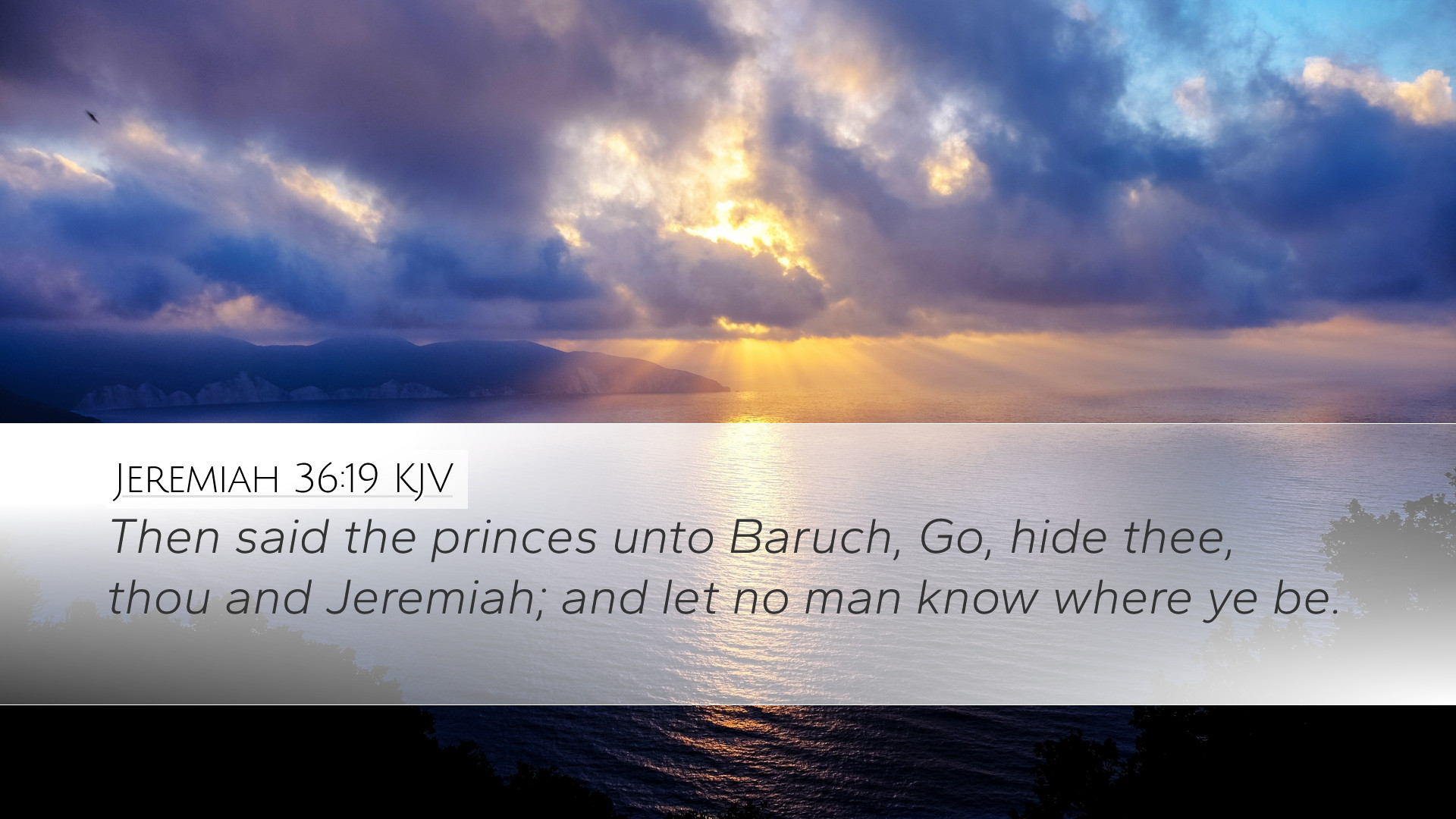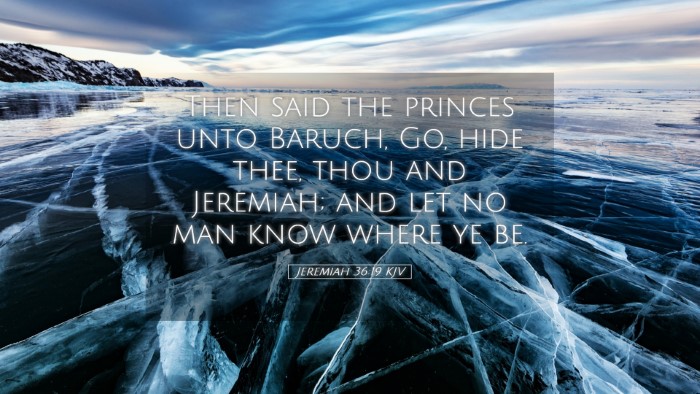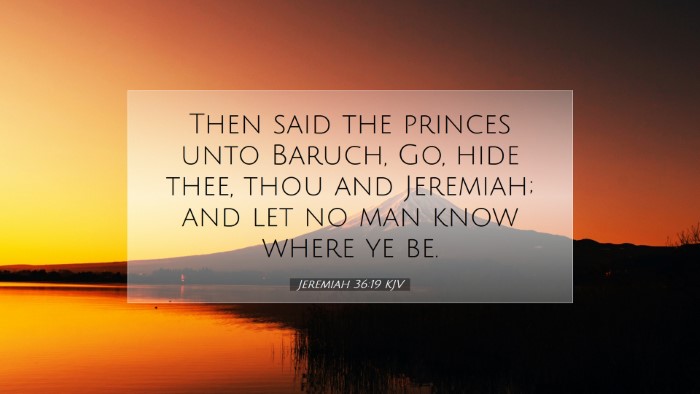Commentary on Jeremiah 36:19
Text of Jeremiah 36:19 (KJV): "Then said the princes unto Baruch, Go, hide thee, thou and Jeremiah; and let no man know where ye be."
Introduction
The context of Jeremiah 36:19 follows the destruction of a scroll containing Jeremiah's prophecies, which were read in the presence of King Jehoiakim. This moment marks a significant turning point in prophetic ministry and royal opposition, underscoring themes of oppression, providence, and divine intervention.
Analysis of the Verse
This verse describes a critical moment in the narrative when the princes recognize the danger posed by Jeremiah's prophecies. Their advice to Baruch to hide himself and the prophet shows both a respect for their messages and an understanding of the peril that such proclamations would incite from the king and his officials.
Insights from Matthew Henry
Henry emphasizes the precarious position of Baruch and Jeremiah. He asserts that although the princes demonstrate a protective instinct towards the prophets, their action signifies the beginning of a more pronounced state of hostility against prophetic voices. Henry notes, “The counsel of the princes lies in a natural fear; this is not only a recommendation for safety but reflects the environment's perilous attitude towards divine messages.”
Insights from Albert Barnes
Barnes highlights the significance of the princes' reaction, stating that their concern showcases a degree of awareness of God's will. He points to the fact that their suggestion to hide reveals an implicit acknowledgment that the prophecies are indeed from God, warranting protection. Barnes writes, “The princes, caught between their duty to the king and their recognition of divine authority, act to safeguard the messengers, signifying an internal conflict within the political class of Judah.”
Insights from Adam Clarke
Clarke offers a detailed theological reflection on fear and faith, suggesting that the princes’ response not only indicates self-preservation but a recognition of the prophetic truth’s potency. He states, “The princes’ desire to hide Jeremiah and Baruch can be interpreted as an indirect testimony to the power of God’s word. They are acting in reliance, albeit limited, on the certainty that the prophecies will come to pass, thus they seek to shelter the heralds of such predictions.”
Thematic Considerations
- Opposition to Prophetic Voices: The chosen action of the princes indicates the inherent conflict between divine pronouncement and human governance.
- The Role of Fear: A recurring theme is the fear that compels individuals to act in ways that may seem prudent but inherently deny their own faith in God's ultimate authority.
- Divine Protection: The idea that God protects His messengers, which can be inferred from the princes' actions, highlights His ongoing involvement in human affairs.
Application for Contemporary Readers
For modern pastors, theologians, and scholars, the dynamics presented in Jeremiah 36:19 serve as a reminder of the challenges that accompany prophetic ministry. There is an ever-present danger of overshadowing divine truths when confronted with earthly powers and fears. The encouragement lies in recognizing that God's word, though often met with resistance, will ultimately prevail.
Reflection Questions:
- What contemporary applications can we draw from the princes' reactions to the prophetic messages?
- How can fear influence our faith and actions today?
- In what ways is God calling us to protect or support the voices of truth within our communities?
Conclusion
Jeremiah 36:19 encapsulates the tension between divine instructions and human responses. Through the insights of reputable biblical commentators such as Matthew Henry, Albert Barnes, and Adam Clarke, we gain a deeper understanding of the challenges faced by God’s messengers. This verse encourages us to remain steadfast in our faith, recognize divine providence in our circumstances, and support the voices that proclaim truth amidst potential opposition.


